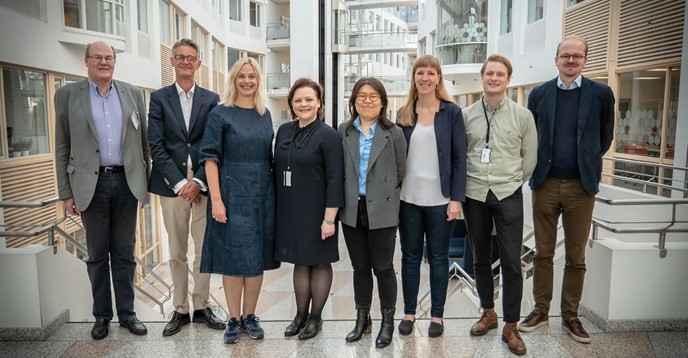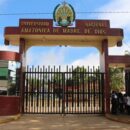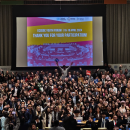IESALC will moderate panel on mobility in higher education at the 40th General Conference of UNESCO


Currently about 5 million people study outside their countries, and 2.5 million of them do so outside their home region. Many of these people face the problem of recognizing their studies when they return to their country or region. In this context, it is worth asking: What policies are the States implementing to facilitate the circulation of knowledge? What is the importance of the global campus? What measures are being taken to expand international cooperation and mobility in learning, teaching and research?
These are some of the questions that will be raised during the Mobility Panel in Higher Education of the High Level Ministerial Meeting on Inclusion and Higher Education, which will be held on November 13, 2019 in the framework of the 40th General Conference of UNESCO, in Paris, France.
The UNESCO International Institute for Higher Education in Latin America and the Caribbean (UNESCO-IESALC) will be in charge of moderating the panel, in which representatives of higher education ministries from different regions will participate, as well as rectors of universities on a global scale, to share their visions and experiences in ensuring inclusive and quality higher education for all people, including migrants, refugees and displaced persons. It is expected to have 100 ministers and more than 50 university leaders.
UNESCO has promoted instruments to facilitate the recognition of studies as part of an inclusion policy aimed at international cooperation, such as the Global Convention on the Recognition of Higher Education Qualifications, to be presented at the 40th General Conference of UNESCO for approval, and the New Regional Convention for the Recognition of Studies, signed by 23 countries of Latin America and the Caribbean in Buenos Aires, in June 2019.
Higher education is essential for the achievement of the Sustainable Development Goals (SDGs) and is proposed as part of the 2030 Agenda in order to ensure that States guarantee quality, inclusive and equitable education with equal opportunities for all people throughout life, as part of the motto “leaving no one behind.”
RELATED ITEMS








